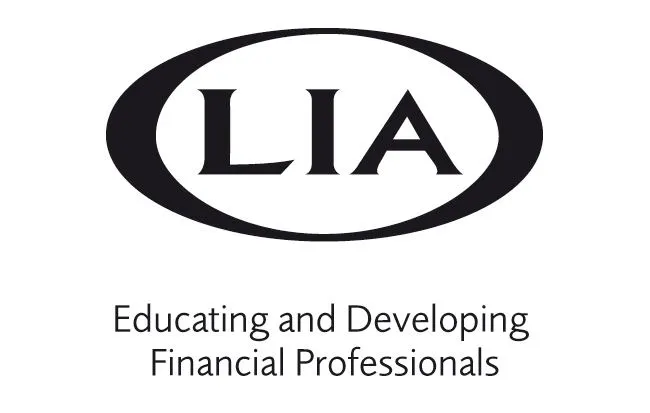Advisor Perspectives welcomes guest contributions. The views presented here do not necessarily represent those of Advisor Perspectives.
As financial planners, some of the most important conversations we have with clients are not about money – at least, not exactly. Oh, sure, we spend a lot of time in discussions with our clients about money and finances that typically center on helping them answer the “how” questions: “How am I going to pay for college for my kids?” “How am I going to be able to retire comfortably?” “How am I going to keep from paying too much in taxes?” And so on.
But in my practice, I’ve found that it’s more important to ask the “why” questions: “Why is retirement important to you?” “Why does a college education for your kids matter?” “Why is this particular cause or organization of consequence to you, and what do you want to do about it?” “Why should you invest your money in a particular way?”
A phrase I use often when talking with clients is, “Money can’t buy happiness, but it can give you choices.” The fact is that money, though it is necessary for most of the things we care about in life, isn’t what our clients care about. They care about security, helping those they love, and having meaningful experiences. None of those are monetary, strictly speaking, but money is certainly involved.
As we talk with and counsel our clients, they need to have the right emotional attitude about money and investing. And most of those attitudes center on concepts that are central to both investing and life in general: uncertainty, planning, flexibility, and compounding. These may seem to be obvious ideas, but I’m continually surprised by how often, amid the daily rush of meeting preparation, account reviews, responding to emails and client requests, and all the other urgent tasks that take up space in my days, I forget to step back and take stock of the “why” behind all the activity. And if I forget, doesn’t it seem likely that my clients might lose sight of the bigger picture from time to time? Periodically, I re-center by thinking about these foundational concepts – and help my clients to do the same.
Uncertainty
It’s a given that life is uncertain. There are so many things we can’t control that have a tremendous impact on our lives. But if we wait until we are certain before taking action, we’d never do anything! Similarly, we need to periodically remind our clients that they can make wise investment decisions without knowing what the market is going to do during any time period. The important thing to help them remember is that they’re investing in the ability of well-run companies to make good decisions over the long haul.
Planning
In a similar way, clients don’t have to know everything that’s going to happen to make a viable plan. Most of us go to work every day with a plan for what we intend to accomplish, but we also know that things may come up during the day that shift our focus and change our plans. The same is true for our clients’ financial strategy. We need to remind them that their priorities or circumstances may change over time, necessitating a change in their plan. As financial counselors and advisors, we understand that we are there to help them revise their plans and strategies as dictated by changing circumstances. But they still need to have a plan in place.
Flexibility
We all know that the ability to shift course when needed is essential in life. Given life’s inherent uncertainty, it’s foolish to think that we won’t alter an approach or change a tactic now and then. In fact, if you think about people you’ve known who have achieved great success or overcome difficult obstacles, you’ll realize that, rather than being stiff and unbending, they were able to adapt – to be flexible. As General Eisenhower once said, “No plan survives contact with the enemy.” We can help our clients to understand that it’s the same with their investments. We help them see that, while they shouldn’t change everything every time there’s a new headline in the financial news, their strategy – the one we’ve worked with them to develop – should allow for creative adaptation in certain circumstances.
Compounding
The experiences we have in life provide us with the opportunity to learn and gain insight. As these insights build on one another, we gain wisdom. Wisdom is the life equivalent of compound interest or investment value. We can help our clients remember that, just as learning from past experiences helps them make better future decisions, giving their investments the time to compound and grow helps them create a stronger financial legacy.
In 2011, researchers at Boston College conducted a study of 165 very wealthy households (net worth of $25 million or more, average net worth $78 million). Funded by Wachovia Wealth Management and by the Gates and Templeton foundations, researchers wanted to learn, among other things, what things the very wealthy worry about. Though we might expect their concerns to center on financial threats – taxes, unfavorable legislation, or similar matters – the surprising fact that emerged from participants’ comments was that most of their worries were not primarily financial. They worried about the safety of their families; the quality (or scarcity) of authentic relationships; the loneliness and isolation they often feel; and the lack of understanding frequently exhibited by others. In other words, the very wealthy are much more concerned with the “why” than the “how.” Though most of our clients don’t occupy the same ranks as those in the Boston College survey, they have the same need: to grasp the importance of the “why.”
As their financial guides and counselors, we need to help them.
Source: by Kimberly Foss,
How we help
We can help take the effort out of this for you by demonstrating how this would work for you and your family and providing you with one cohesive Holistic Lifestyle Financial Plan.
You can arrange a meeting by clicking here to access my diary, email info@smartfinance.ie or call 087 8144 104.







